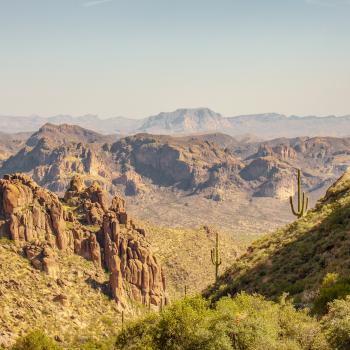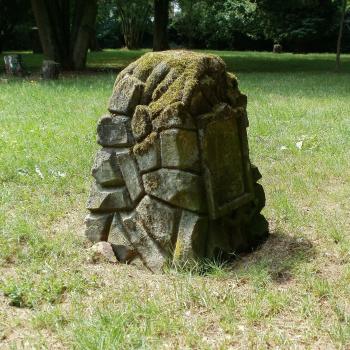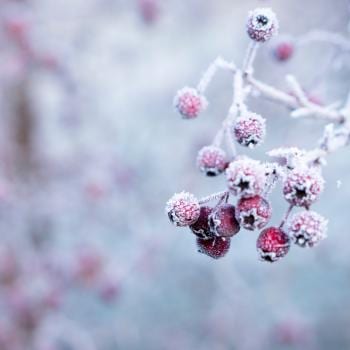I stumbled upon a very useful post over on Aedicula Antinoi that helped answer (or stir further) some questions I hadn’t been aware I was striving towards. The post helped me affirm that – dude, I’m alive, I’m engaged in spiritual and religious pursuits, I’ve got friends and lovers; that’s all pretty amazing. Perhaps that’s a strange thing to get out of the article in question, but, ultimately, my life doesn’t have to be the most important thing ever, I don’t need to be a revolutionary, to be holy.
The article helped remind me that some parts of my life – most parts of my life – are just random events from being alive, and they don’t have any greater ‘purpose’, but they are still amazing. (Tomorrow’s post will, however, veer in a bit more of a ‘look at all the omens everywhere!’ direction, so be aware.)
All my thoughts were further stirred by this post by Yvonne over at Sermons from the Mound. My ethics, my decisions in daily life, my choices concerning my life as a whole – they come from the stories I read and what rings true to me as good behavior and what the gods want. That might seem strange: what the gods want. So, in that way, I have morals as Yvonne defines them. I want to stress that I don’t think I know exactly what the gods want or that I’m right about how everyone should live their lives. I do think, though, that I know what the gods want from me and how their stories relate to me.
So when I’m friendly with people there isn’t some great cosmic meaning, but it is important, and I’m acting the way my gods prefer me to, and that means a lot to me.
But! I’ve gotten off what I originally wanted to talk about, which is divine drama – myth. (Yes, I’m still going on about the mythos of the Westernlands! Please forgive me for nattering on and on about it, since it’s currently consuming my life.) My mind finally came back to thinking of the myth upon reading this post over at The Crow and the Hound. Specifically:
Hesitation is something each of us deal with, that moment where doubt settles in and we can no longer be as we were, can no longer trust that our outstretched hand won’t be burned, bit, or broken. The Fear has settled deep.
[…]
I want to unclench my tight grip on reality and just be for once. To lose control and just relax. I have a desperate stronghold on my life and I feel like, maybe, it is slowly killing me. Perhaps that is what I need. A death, of a kind. It wouldn’t surprise me.
Well that is painfully relevant to the stories I’m working in.
Near the end of the mythos of the West, Fear* has returned to the land and begun to restore it – fixing what his brother had leeched away – as well as restoring his former lover to fullness after he had been split apart. But he hesitates again and again. He has clawed his way back to his home and the world he loves through hard work and powerful will, but the grip he has around himself – and that he tries to enforce on others – ends up spelling further disaster for everyone involved. He’s frightened of what will happen if he goes with his impulses and instincts rather than planning and plotting.
Eventually, he ends up releasing his control and going with his body and the land around him, though that comes with a price (namely, the death of his relationship and idealization of what love is rather than what it actually is). He reaches out and watches as what he thought he knew dies and what is far more stable and real bursts forth.
The more I think about the myths, the more I realize they’re so relevant to what I’m experiencing and have experienced all my life – once a door is opened, it cannot be shut, but the door must be opened. Fear*, the Dierne, could have restored the land and earned his crown through many ways, or perhaps not earned it at all but lived a simple life on the outskirts of his mythic world, but he throws open the doors and slices the status quo down the center. (Especially if that status quo is damaging to the land or people.) I think, also, that one of the lessons, one of the meanings, if I am to get one, from this story is that while none of us are really obligated to do anything, to help another person or place, we should.
The stories of the West are not about lessening harm, though they do include retribution for crimes and the destruction of those that injure the land and people, but more about pursuing joy. So…my ethics are about joy. (And consent is one of the biggest things in the myths and religion, but that’s for another time.)
This post has gone everywhere and nowhere I really meant it to. What I’m trying to say, I suppose, is that the myths inform my life, and they inform me of the gods, but my life doesn’t have to be huge and mythic to be breathtaking.
















